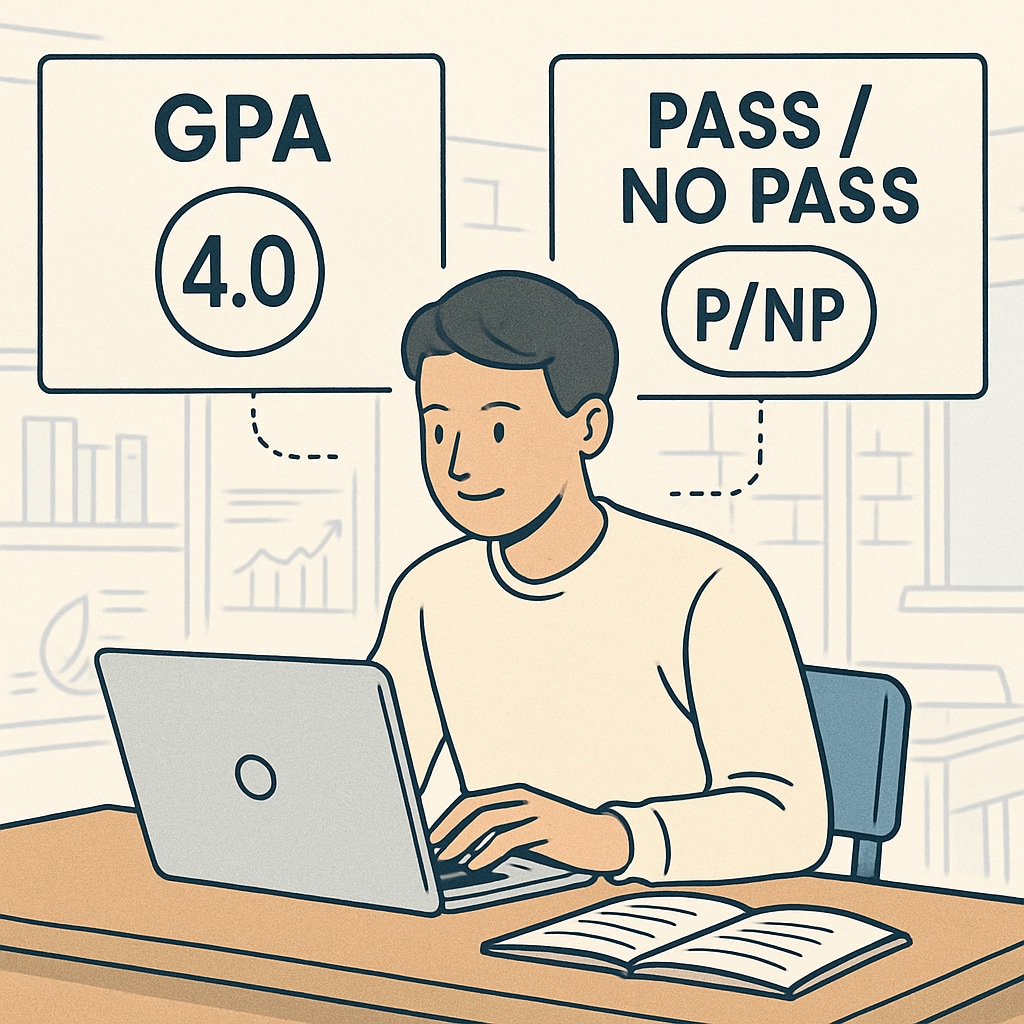The choice between traditional GPA grading and Pass/No Pass (P/NP) systems can have a profound impact on your academic records, job opportunities, and long-term career prospects. This decision often leaves students weighing the importance of preserving a strong GPA against the flexibility offered by P/NP grading. Understanding how each system aligns with your career aspirations is vital for making informed choices.

Understanding the GPA and P/NP Grading Systems
Traditional GPA grading assigns letter grades (A, B, C, etc.) to coursework, directly contributing to a cumulative GPA that serves as a key metric for academic performance. On the other hand, P/NP grading evaluates students on a binary scale—Pass or No Pass—without impacting GPA. While P/NP offers relief from academic pressure, it may raise concerns about transparency regarding academic abilities.
- GPA Grading: Provides detailed representation of your academic performance and is often required for scholarships or graduate programs.
- P/NP Grading: Offers flexibility and reduces the stress of maintaining high grades but may limit opportunities in highly competitive fields.
For example, competitive industries like finance or consulting often prioritize candidates with high GPAs, while creative fields may value portfolios and skills over numerical scores.
The Impact of Grading Choices on Career Development
When considering how grading systems influence career prospects, it’s essential to account for your intended professional path. Employers and graduate schools may interpret P/NP grades differently, depending on the context. Therefore, the choice can either enhance or limit your future opportunities.
Here are some critical considerations:
- GPA-Driven Careers: Fields such as medicine, law, and engineering often require a strong GPA for internships, certifications, and graduate programs.
- Skill-Focused Careers: Industries like design, entrepreneurship, and media may prioritize creativity, experience, and soft skills over academic grades.
- Hybrid Careers: In roles like data analysis or marketing, both GPA and practical skills may hold equal importance.
As a result, students aiming for GPA-centric professions should favor traditional grading, while those pursuing skill-driven paths could benefit from the flexibility of P/NP grading.

Crafting a Decision Framework Based on Career Goals
To make an informed choice, students should establish a clear framework based on their goals, academic strengths, and industry expectations. Here’s a step-by-step process:
- Assess Your Career Ambitions: Identify whether your field prioritizes GPA, skills, or a combination of both.
- Evaluate Your Academic Strengths: Consider whether you excel in coursework consistently or face challenges in certain subjects.
- Research Industry Standards: Review job postings and graduate program requirements to understand grading preferences.
- Consult Advisors: Seek guidance from academic counselors or industry professionals about the implications of grading systems.
Therefore, a strategic approach can ensure alignment between academic decisions and long-term aspirations.
Final Thoughts on Navigating Grading Dilemmas
Choosing between GPA and P/NP grading systems is not just an academic decision—it’s a strategic career move. While GPA grading offers clarity and measurable results, P/NP grading provides flexibility and mental relief. Ultimately, the choice depends on your career goals and the expectations of your desired field. By understanding the impact of grading systems, consulting resources, and planning ahead, students can confidently navigate this important academic decision.
For further reading, explore grading systems and their implications on Grade Point Average on Wikipedia or career-focused grading insights on Education Systems on Britannica.
Readability guidance: Use concise paragraphs and lists to summarize key points; incorporate transitions for flow; and balance detailed analysis with actionable advice for clarity.


